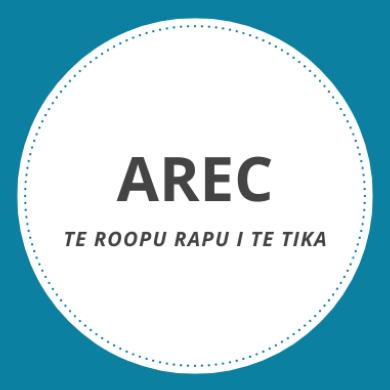Independent research ethics review
We have been providing guidance, support, and ethical review services for researchers in Aotearoa since 2012.
2025 update: We are currently experiencing a significant increase in demand for our services from both private and government researchers, which is creating delays. Please bear with us. For more information, please see the bottom of the page.

Nau mai | Welcome
The Aotearoa Research Ethics Committee, formerly the New Zealand Ethics Committee, is an independent, not-for-profit ethics advisory committee based in Aotearoa New Zealand. Our role is to provide independent ethical review of community research conducted in Aotearoa New Zealand, and to safeguard the rights and well-being of research participants and researchers.
We offer ethics review to community, professional, and government researchers who are not eligible to apply to the standing ethics committees for tertiary institutions or the health and disability sector. We are committed to providing guidance and support to researchers with the aim of furthering ethical research in Aotearoa.
Seeking review through the Aotearoa Research Ethics Committee is a voluntary process. Researchers may walk away from the process at any stage. Keeping this in mind helps the review committee respect the dignity and autonomy of the researcher in the same way that ethical research should respect the dignity and autonomy of the participants.
Why apply for ethics review?
A growing number of researchers are choosing to submit research applications for review by the Aotearoa Research Ethics Committee and formerly, the New Zealand Ethics Committee. Researchers seek review voluntarily and they may withdraw an application at any stage.
You may want to consider having an ethical review of your research project if:
- you are gathering information or data and want to ensure you are adhering to ethical standards;
- you want to ensure that your research design is ethically sound and protects the rights of your participants;
- you want to ensure you have considered and minimised any risk for participants;
- you want to ensure that your research has beneficial outcomes;
- you want to increase the legitimacy of your research and perhaps publish your results;
- your funding requires ethical review.
You can find more details about applying for review under REVIEW PROCESS.
“I wish to thank the committee for what you do by your review process, which for me is thought-provoking and a great reminder to not be complacent about ethical / evaluation / research matters and the ways in which I articulate them. Thank you also for your genuine support and willingness to awhi and support my application process”.
Shaun Akroyd, Managing Director, Akroyd Research & Evaluation
On the problems of AREC’s success
Further details on the current delays: we are currently experiencing a significant increase in demand for our services from both private and government research contracts. We are now receiving up to 10 applications per month, which is a lot for our voluntary ethics committee (AREC). It is fantastic that so many researchers are seeking research ethics review. However, we are all volunteers so our unpaid labour is effectively subsidising government and private sector research.
AREC is managed by a charitable trust established to support community researchers, so that the reviewers themselves are at arm’s length from any financial considerations. One of the challenges the Trust board face is that our choice of structure prevents us from offering payment to our reviewers and chairs; that structure is important to us, as the point of this committee was to provide charitable services to community researchers who would otherwise be unsupported in their research ethics. For those interested our functions, the trust board deed sets out the overall goal of the trust is to ‘benefit the community by the support and advancement of independent and quality ethical reviews of research initiatives’. To do that the trust deed states that we will oversee, facilitate and provide support and assistance to AREC and other ethical review bodies by
• overseeing the recruitment of new voluntary members for research committees including AREC;
• providing training, capacity and capability building regarding the review of research ethics applications;
• fostering an awareness of ethical principles and practices in the research community;
• collaborating with researchers to protect the interests, rights, dignity, welfare, health, and wellbeing of participants and consumers;
• giving due consideration to community views;
• providing training, capacity and capability building to the wider research community with regard to research ethics;
• networking and collaborating with academic and community organisations to achieve our purposes;
• where relevant, and with the agreement of the Trust Chair/CoChairs, making comment on public issues in Aotearoa New Zealand society related to human ethics;
• writing an annual report on the work of AREC…The Trust will publish the report on the AREC website.
